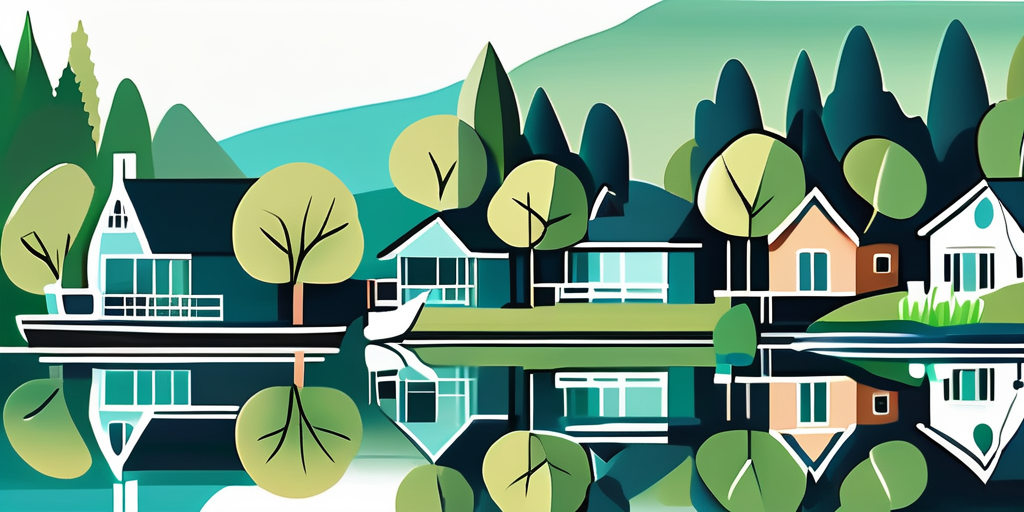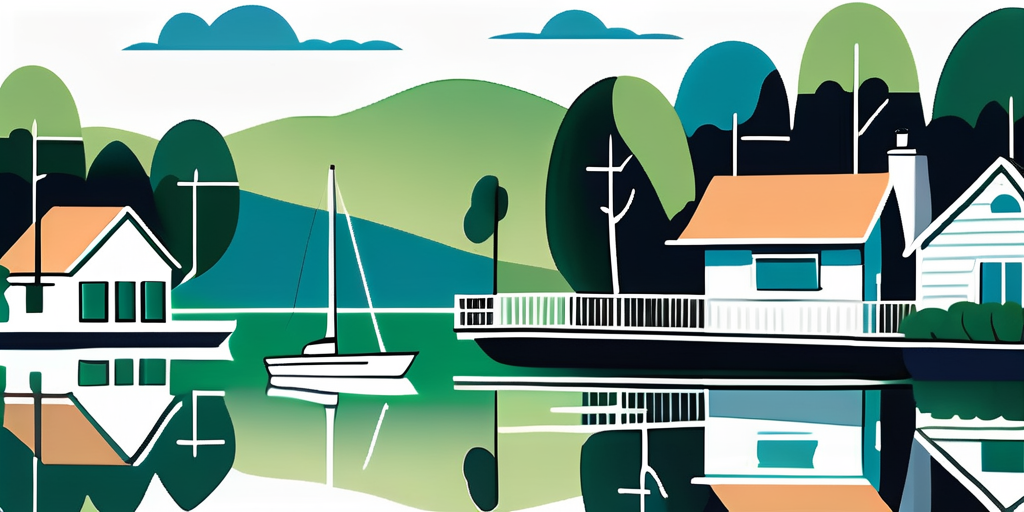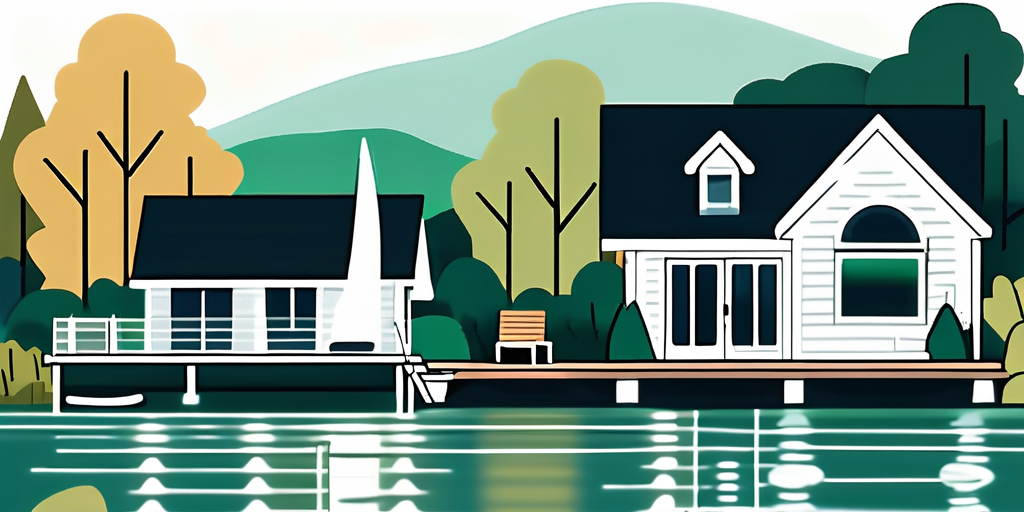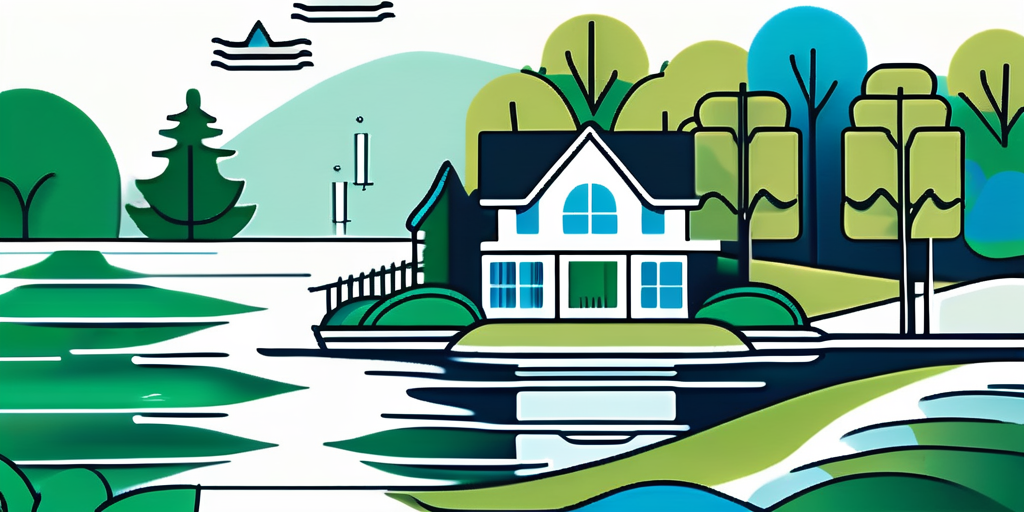
If you've ever dreamt of waking up to the view of a serene lake, with the gentle sound of water lapping against the shore, then you're not alone. Lakefront real estate offers a unique lifestyle that attracts many buyers. This guide will help you explore the allure, considerations, and financial aspects of owning a lakefront property.
Lakefront properties are often considered a slice of paradise. They provide not only stunning views but also a multitude of activities right at your doorstep. The lifestyle associated with lake living is a significant draw for many homebuyers looking to escape the hustle and bustle of city life.

Living on the water has its unique appeal. Imagine morning coffee on your porch, with a beautiful sunrise reflecting off the lake's surface. For many, this daily scene transcends mere aesthetics; it fosters a sense of peace and tranquility that is hard to find elsewhere.
Moreover, lakefront living promotes a close connection with nature. From watching wildlife to enjoying sunsets, the opportunities for outdoor experiences are abundant. Whether it's boating, fishing, or even just a leisurely swim, the lake becomes an integral part of daily life. The gentle lapping of the water against the shore can serve as a soothing soundtrack, enhancing relaxation and providing a natural escape from everyday stressors. Additionally, many lakes offer seasonal activities such as ice fishing or winter sports, ensuring that the allure of lakefront living extends throughout the year.
In addition to the picturesque views and lifestyle, lakefront properties often come with several benefits. First, there is the potential for recreational activities. Kayaking, paddleboarding, or simply relaxing by the water can significantly enhance your quality of life.
Furthermore, these properties often hold their value well compared to inland homes. Many buyers are willing to pay a premium for waterfront access, which can lead to good appreciation over time. That said, the appeal of lakefront homes can vary significantly between regions based on location and water quality. Another noteworthy benefit is the community aspect; many lakefront neighborhoods foster a sense of camaraderie among residents, often leading to friendships built around shared interests in boating, fishing, or participating in local events. This sense of community can be particularly appealing for families and retirees alike, creating a supportive environment that enhances the overall living experience.
Purchasing a lakefront property is not just about beauty and relaxation. You need to think about several key factors before making a commitment. These considerations can help you maintain your investment and ensure that you are making a smart choice.

When it comes to lakefront properties, location is everything. You’ll want to consider how easy it is to access the property year-round. Is the area prone to flooding, or is the road well-maintained?
Moreover, the proximity to nearby towns, services, and amenities can affect your enjoyment. A beautiful, secluded spot might be appealing, but if it’s far from shops or medical facilities, it could become a challenge over time. Additionally, consider the seasonal accessibility; some areas may be difficult to reach during winter months due to heavy snowfall or icy roads. Understanding the local climate and how it impacts accessibility can save you from potential frustrations.
Owning a lakefront property comes with unique maintenance tasks. Water exposure can lead to increased wear and tear on your home. Regular maintenance is crucial, whether it’s checking for rot, mold, or erosion of the land.
You should also think about the upkeep of the outdoor areas. Managing the landscaping around your home is important, especially if you want to keep that picturesque view clear. This could involve planting native vegetation that requires less water and maintenance. Furthermore, consider the implications of seasonal changes on your property; for instance, heavy rains may necessitate additional drainage solutions to prevent flooding, while winter weather may require snow removal strategies to protect your access points and pathways.
Another vital factor is the health of the lake itself. Is the water clean enough for swimming, fishing, or other recreational activities? Regular testing of water quality is essential for both your safety and enjoyment.
Additionally, understanding whether the lake has any algae blooms or pollution caused by nearby agricultural practices can help you assess the long-term viability of your investment. It’s also beneficial to research the local wildlife and fish populations, as a healthy ecosystem can enhance your recreational opportunities and overall enjoyment of the property. Engaging with local environmental organizations can provide insights into conservation efforts and any upcoming regulations that could affect your lakefront experience.
Investing in lakefront real estate can be financially rewarding, but it has its complexities. Understanding the market, property values, and tax implications will help ensure you make a sound investment.
When it comes to property values, lakefront homes generally appreciate well. However, it’s crucial to research comparable sales in the area. Market trends can fluctuate, and understanding the local real estate landscape can help you identify a fair purchase price.
Keep in mind the seasonality of lakefront properties; many buyers look for homes in spring and summer, so prices may vary throughout the year. Timing your purchase can make a significant difference to your investment cost. Additionally, consider the amenities and features that can enhance property value, such as private docks, boat access, and proximity to recreational activities. These factors not only attract buyers but can also lead to higher resale values.
Insuring a lakefront property might be more complicated than insuring an inland home. Water-related risks can necessitate additional coverage, such as flood insurance, which can increase ongoing costs.
Moreover, taxes may differ based on local assessments. Some areas may have higher property taxes due to the desirability of lakefront living, which can impact your overall budget. Be sure to consult a local tax advisor to understand these implications thoroughly. It's also wise to consider the potential for capital gains tax when selling your property, especially if it appreciates significantly over time. Understanding these financial obligations will help you plan better for the future.
If you’re not planning to use your lakefront property year-round, consider the rental market. Many people seek out vacation rentals near lakes, which could generate consistent income when you’re not using the space yourself.
With the rise of platforms like Airbnb or Vrbo, it's easier than ever to market a lakefront property to potential renters. Just keep in mind that there are regulations and restrictions for short-term rentals in many areas, so research is essential. Additionally, you may want to invest in property management services to handle bookings and maintenance, which can streamline the rental process and maximize your income potential. Highlighting unique features of your property, such as scenic views or outdoor activities, can also attract more guests, further enhancing your rental income.
Before purchasing a lakefront property, it's crucial to be aware of legal and environmental issues associated with lakeside living. These factors can have lasting impacts on your lifestyle and investment.

Different states have different laws concerning water rights. Understanding what you can and cannot do with the water is important before finalizing your purchase. Ensure you know whether you have access to the waterway, and any potential limitations on usage.
As a lakefront property owner, you might have to adhere to specific guidelines regarding construction and other activities that can impact the lake ecosystem. For instance, some areas may require permits for boat docks or piers, and there may be restrictions on the types of boats you can use to protect local wildlife. Being informed about these regulations can save you from costly fines and ensure that you are contributing positively to the lake’s health.
Each locale may have varying zoning laws that restrict certain types of building or major renovations near the water's edge. Familiarize yourself with local regulations to avoid future legal issues.
Engaging with a local real estate attorney or agent familiar with zoning laws can help navigate this complex landscape, ensuring that your dream home can be built without any hitches down the line. Additionally, it’s wise to check for any homeowners’ association (HOA) rules that may impose further restrictions on property modifications or landscaping choices, which can affect your overall enjoyment of the property.
With the increasing awareness of environmental sustainability, being conscious of your impact on the lake and surrounding ecosystem is critical. Pollution and runoff can severely harm water quality, affecting not just your property but the community as a whole.
Consider how your landscaping, home construction, and daily activities may impact the environment, and look for ways to minimize your footprint. This could involve using native plants, rain gardens, or permeable paving to reduce runoff. Additionally, implementing eco-friendly practices such as using solar panels or rainwater harvesting systems can enhance your property’s sustainability while potentially reducing utility costs. Engaging with local environmental groups can also provide valuable insights and resources to help you maintain a healthy ecosystem around your lakefront home.
Furthermore, understanding the local wildlife and their habitats is essential. Many lakes are home to various species of fish, birds, and other wildlife that contribute to the natural beauty and biodiversity of the area. Being mindful of how your activities may disrupt these habitats can foster a more harmonious relationship with nature, allowing you to enjoy the serene surroundings while protecting the environment for future generations.